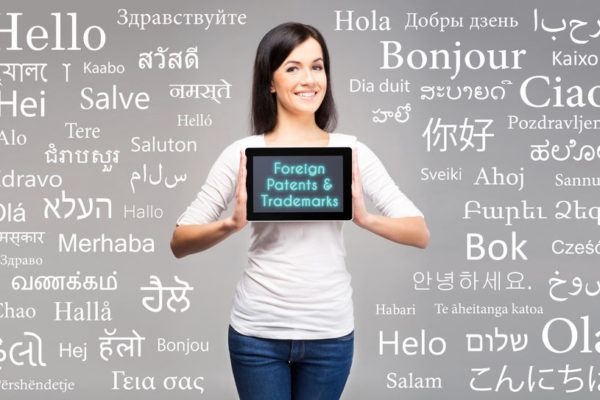
Foreign IP Protection
Overhauser Law Offices assists clients throughout the world in securing patent, trademark and copyright protection in the United States. We also help U.S. clients get protection in foreign countries.
Foreign patents
Rights granted by a U.S. patent have no effect in foreign countries. Almost every country has its own patent law, so a person desiring a patent in a particular country must apply for a patent in accordance with the requirements of that country.
Patent law in most foreign countries differs from patent law in the U.S. Often, a patent must be filed before any documentation about invention is published. Like the U.S., many countries charge maintenance fees to sustain their patents, and some countries require that patented inventions be manufactured in that country. Neglecting to fulfill any of these requirements may result in a voided patent.
The Paris Convention for the Protection of Industrial Property is an international treaty including 168 countries that guarantees foreigners the same patent rights extended to citizens of that country. The treaty also provides for “right of priority,” meaning that a patent application filed in one country may be given the same filing date in other member countries, if the subsequent filings are within a specified time period (six or 12 months, depending on the patent). The right of priority is important to ensure that publications and competing patents that might invalidate the inventor’s application do not count against the inventor.
The Patent Cooperation Treaty has more than 124 member nations and provides for centralized filing procedures and a standard application format. Regional patent centers now facilitate a single international filing date for each application. This international filing also affords centralized patent research for each invention and extended time periods for filing the patent in each country.
Overhauser Law Offices employs attorneys who specialize in obtaining foreign patents. Contact us to schedule a consultation.
Foreign Trademarks
United States trademark registrations only protect you in the U.S. In order to protect your trademark or logo in another country, you will need to file a trademark application in that country.
One cost-effective option involves the Madrid Protocol. This international treaty streamlines the foreign filing process by allowing an applicant to file one application designating as many foreign members countries as they wish. Before the Madrid Protocol, a trademark owner had to hire a local attorney in each country in which protection was desired.
To file a Madrid Protocol application, you must:
- Have a pending U.S. application or an issued U.S. registration with the U.S. Patent and Trademark Office, and;
- Be a U.S. citizen; be domiciled in the U.S.; or have a “real and effective industrial and commercial establishment in the United States.”
Madrid Protocol applications may be filed only by U.S. citizens, residents, or those with industrial or commercial establishments in the U.S. Applicants must have a registered U.S. trademark or a pending U.S. trademark application.
Costs for a Madrid Protocol application vary depending on the number of products and services you want to protect; the more goods and services you have, and the more countries you wish to include, the higher the certification fee.
To consult with Overhauser Law Offices about applying for international trademark protection, please contact us.
Foreign Copyrights
No copyright law offers comprehensive international protection for created works worldwide. Copyright protection in each foreign country depends on the laws of that country. The U.S. participates in two principle international copyright conventions which amplify to a certain degree the registration of foreign copyrights.
An author who wishes copyright protection for his or her work in a particular country should first determine the extent of protection available to works of foreign authors in that country. If possible, this should be done before the work is published anywhere, because protection may depend on facts existing at the time of first publication. Contact us at Overhauser Law Offices to discuss your needs for foreign copyrights.
